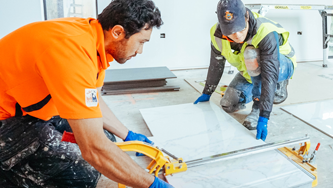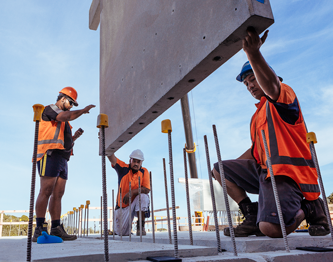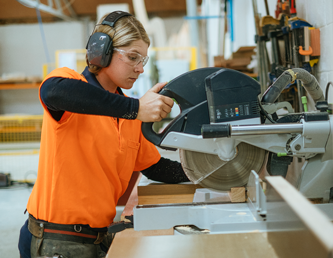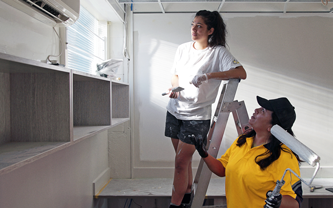Tiling
Tilers work on practical building features such as non-slip walking surfaces, waterproof barriers or under-flooring heating systems. Their work needs to be watertight, functional and look great.
Job Prospects
Very good
Total Fees
The first year start-up fee for Floor and Wall Tiling is $1,182, and each year after that there is an additional annual fee of $875.
Time to qualify
2-3 years
Career opportunities
Tiler, supervisor, project manager, business owner, retail sales, retail manager, tile design and manufacturing
Qualifications
What tilers do
Professional tilers master the use of materials like ceramics, stone, glass, marble and terracotta. They cover walls, floors and surfaces in entrance ways, bathrooms, kitchens, living areas, patios, fireplaces and swimming pools. Tilers may also undertake restorative or repair work on historic buildings.
Tilers who specialise in the more creative side of the trade concentrate on design-driven work, such as swimming pools or mosaic walls and floors. This kind of work might require mastery of new and traditional tiling techniques.
Tiles have to be lined up straight, so tilers need a keen eye for detail. They have to calculate quantities and interpret specifications and plans. A good level of physical fitness is also a must – there’s a bit of lifting and the materials need to be handled with care.
Tiling qualifications
In your apprenticeship you will be working towards the New Zealand Certificate in Trowel Trades Floor and Wall Tiling Level 4.
You’ll work under an experienced tiler who'll provide on-job coaching and tautoko throughout your apprenticeship. You'll also receive the guidance of a BCITO Te Pūkenga training advisor.
There are no strict entry requirements, although it will help if you have good maths and english skills – you need to be able to understand instructions, and work out measurements, quantities and angles.
Your apprenticeship is the start of a professional career
Tiling isn't just a job – it's a professional career. By doing an apprenticeship and getting qualified, you're setting yourself up for ongoing employment as a well-paid tradesperson. You’ll also open up opportunities to do further study in supervision or site management, go to university, or start a business and train your own apprentices.





